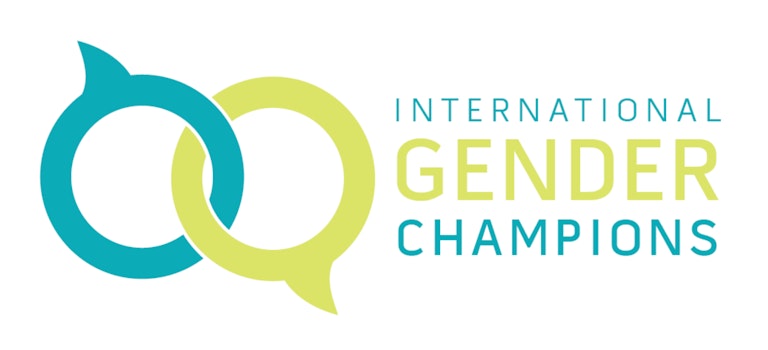For Champions looking for inspiration for their annual two commitments (due 31 January through the Focal Point App) we would like to point colleagues to the Gender Responsive Assemblies Toolkit, and some simple yet powerful commitment suggestions to help make Gender Responsive Assemblies a reality that follow below.
We would also like to highlight the excellent work of the Canadian Mission to the UN in New York that fulfills their commitment to draft a Gender Pledge in 2018 for their Mission. The Pledge itself is quite holistic and may provide inspiration for similar work.
2019 Commitment Guidance
This year, as last, there are only TWO commitments per Champion that are recorded on the website. Commitments are annual and should be measurable and achievable within a year’s time. Commitments should also be specific. One commitment would ideally include measurable activity that focusses on structural change, and/or change in behavior (p.ex, institute balanced selection panels for all new hires, mandate all senior staff take Gender Based Analysis training, staff survey on harassment with series of town meetings to discuss the findings...). In 2019, we ask Champions to deliberately choose precise, active verbs to invigorate the process and create sense of movement, clarity and change:
 Potential 2019 Commitments taken from the IGC Gender-Responsive Assemblies toolkit
Potential 2019 Commitments taken from the IGC Gender-Responsive Assemblies toolkit
1. Advocate as a Member State or Governing Board member for Gender Responsive Assemblies including to (Pick 3 from following list)
- Provide financial and capacity building support to women delegates Institutionalize gender balance on panels and among participants
- Institutionalize gender equality as a standing item on the official agenda
- Create a dedicated body to discuss gender equality issues,
- Designate experts tasked with mainstreaming gender into programming
- Recruit high -level members to serve as gender focal points
- Engage a wider range of at least three new influencer champions from within membership
- Draft a resolution that encourage higher participation of women at a Governing Body
- Engage a wider range of at least three new influencer champions from within membership
- Include in our XXX delegation a high level member who is tasked to serve as a gender focal point
2. Chairs Commit to: (Pick 2 from following list)
- Make a major speech featuring gender and the work of the Assembly
- Institute gender-responsive / family-friendly arrangements
- Track participation of women speakers and highlight the data in plenary
- Institutionalize gender equality as a standing item on the official agenda
- Provide incentives through priority speaking rights
- Institute voting incentives
- Give greater visibility to gender balanced delegations
- Provide prominent places for women delegates and mandate-holders in the plenary or on the dais
- Provide strategic space for women delegates to network in order to influence the agenda
3. DGs/Heads of Secretariats Commit to (Pick 2 from following list)
- Make a major speech featuring gender and the work of the Assembly
- Institute gender-responsive / family-friendly arrangements
- Track participation of women speakers and highlight the data in plenary
- Ensure that women and men members of Secretariat are equally represented in interaction with Member States
- Set dedicated policy to tackle harassment and casual sexism and report on it
- Provide strategic space for women delegates to network in order to influence the agenda
Gender Pledge
Marc André Blanchard, Ambassador, Permanent Mission of Canada to the United Nations in New York, made a commitment to create a gender compact for the Canadian Mission. This resulted in the Gender Pledge developed in a collaborative effort, resulting in a wide-ranging but succinct new tool to advance gender equality considerations. The Gender Pledge has 6 parts that work holistically. Highlights are:
- Staffing and Representation: advocating for women to be represented at all levels; advocating for delegations to be balanced; all staff required to complete online Gender Based Analysis Plus (GBA+) training; nomination of candidates for appointment to senior UN positions
- Management: zero tolerance policy on sexual harassment; gender audit to be conducted every two years; annual unconscious bias training for all staff; adoption of practices to enhance work-life flexibility; inclusion of gender criteria un Public Service Performance Management objectives
- Policy: proactively identify opportunities to promote gender equality at the General Assembly, Security Council, ECOSOC and Peacebuilding Commission; regularly consult with women’s groups on a full range of policy areas not simply those directly on the topics of gender equality
- Communications: ensure visuals and photos have appropriate gender balance; appropriate gender balance in the organization of events; decline to particapte in events of 3 or more speakers where no good faith effort has been made to ensure gender representation, or otherwise highlight if there is a lack of gender representation; mindful of the equitable allocation of speaking time and roles between men and women
- Review: An Ambassador rank focal point on gender equality supported by an expert level office of a different gender appointed by Head of Mission for a term of two years; commitments reviewed on an annual basis; annual report on implementation of the gender pledge
- Approval: Pledge will be signed by all incoming Ambassadors, all Permanent Mission staff required to read the gender pledge.
